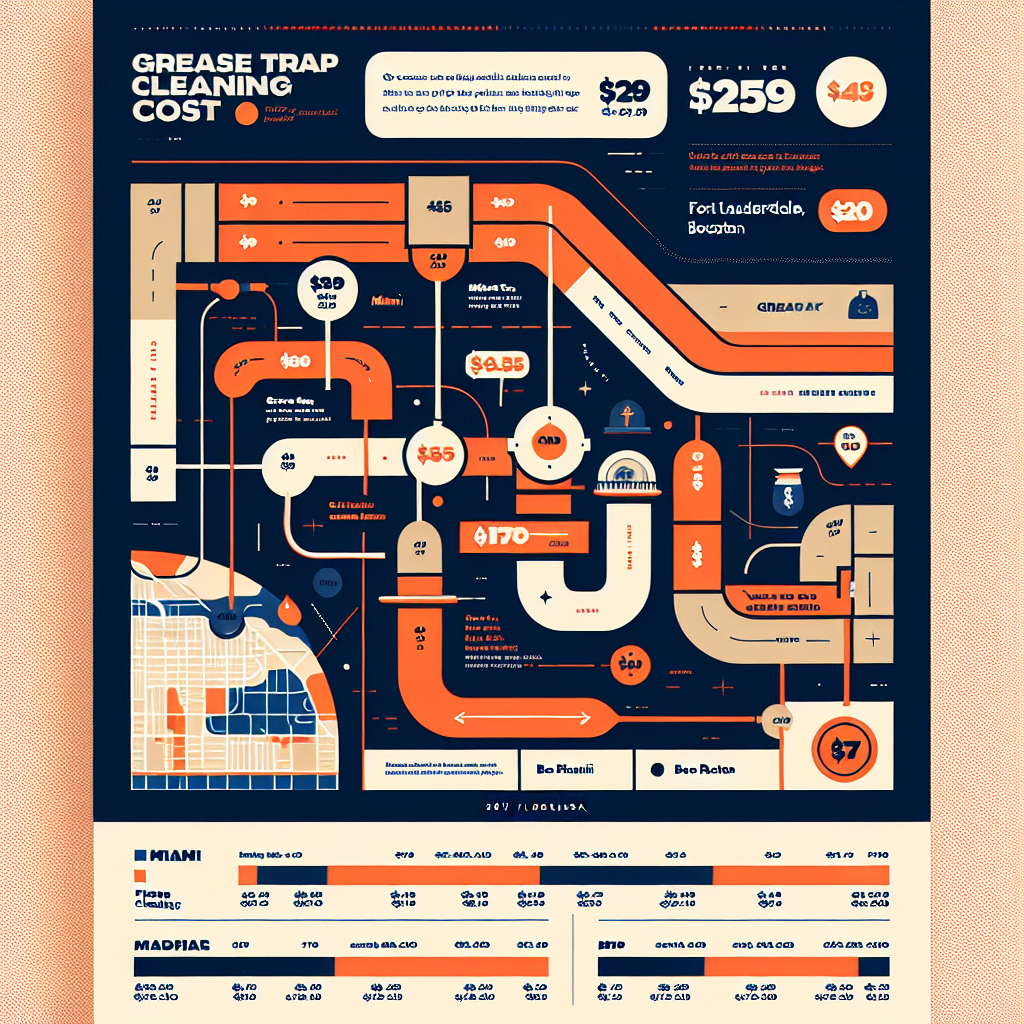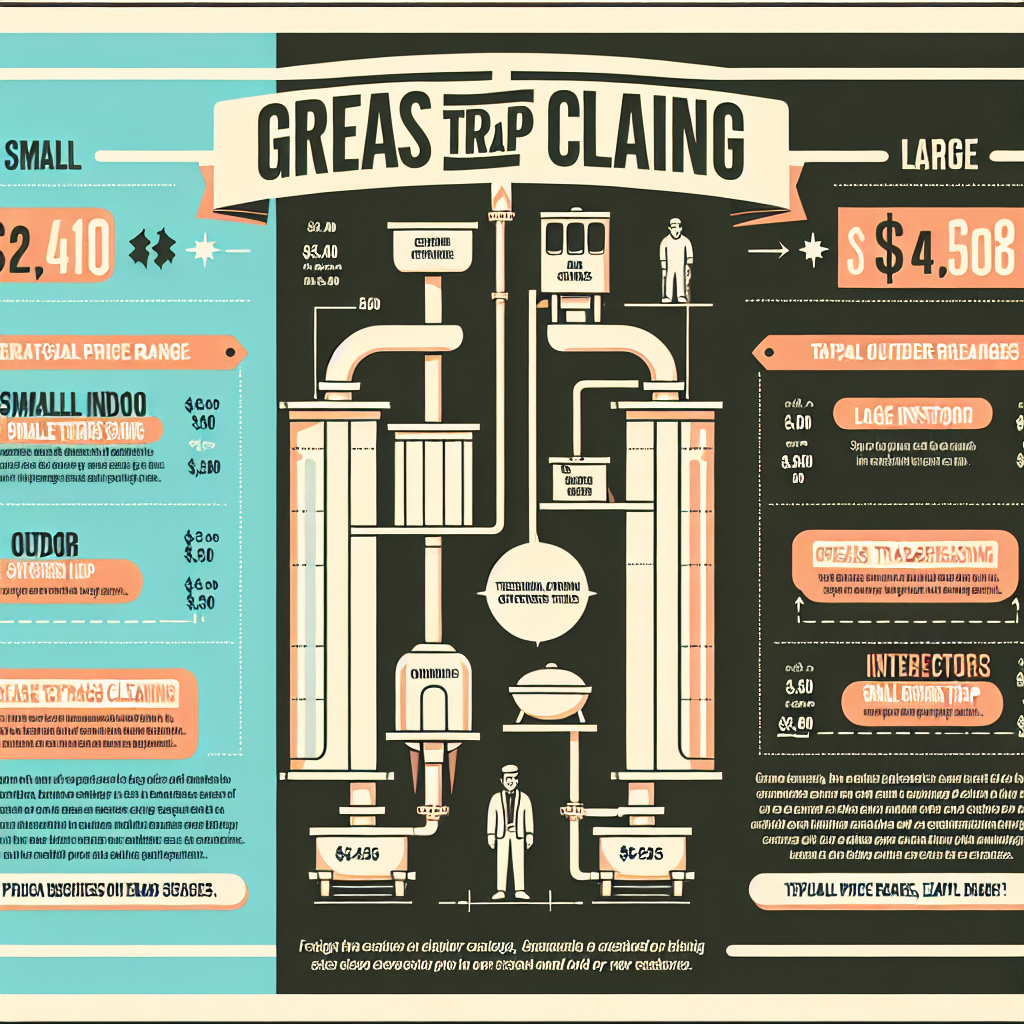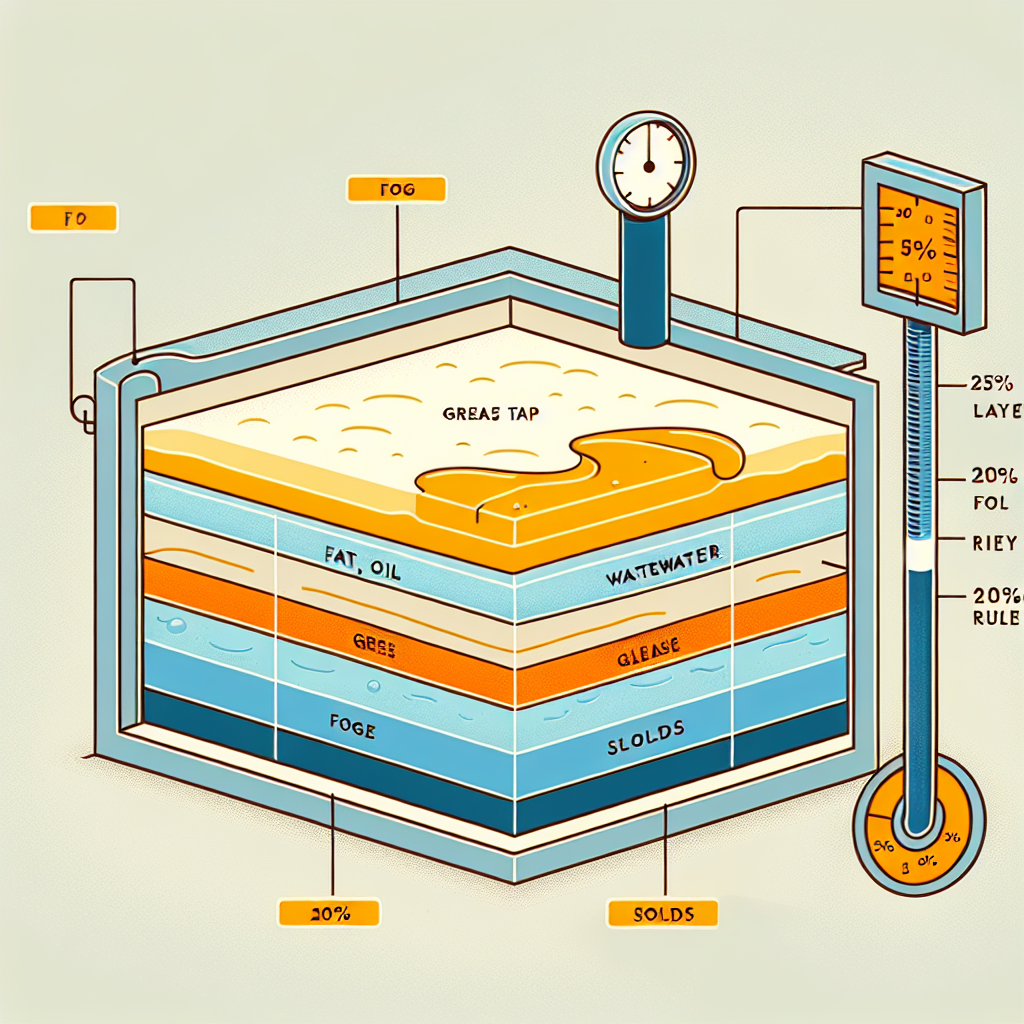Broward County Grease Trap Inspection Checklist
Complete guide to broward county grease trap inspection checklist for South Florida restaurants.
We Handle Everything For You
We handle all the sourcing, negotiations, and logistics to find you the best grease trap service provider at the cheapest cost in your area.
Broward County Grease Trap Inspection Checklist
Broward County Grease Trap Inspection Checklist
Introduction
Navigating the complexities of grease trap inspections in Broward County, particularly in Fort Lauderdale, can be daunting for restaurant owners. This comprehensive guide aims to clarify the inspection process, ensure compliance with local regulations, and help avoid costly penalties.
Understanding Broward County Grease Trap Regulations
Environmental Health Division Requirements
Broward County mandates specific guidelines for grease trap installation and maintenance to protect the local water systems. The Environmental Health Division oversees these regulations, ensuring that all food service establishments adhere to county-specific and state compliance requirements.
Local Enforcement Procedures
Inspections are conducted regularly to ensure compliance with these regulations. Non-compliance can result in significant fines and potentially disrupt business operations.
Installation and Sizing Requirements
Mandatory Installation Requirements
All restaurants in Fort Lauderdale must install grease traps that meet specific sizing and efficiency standards. This ensures that fats, oils, and greases (FOG) are adequately separated from wastewater before it enters the municipal sewer system.
Sizing Calculations
The size of the grease trap required depends on various factors, including the seating capacity of the restaurant and the volume of food prepared. Proper calculations are essential to ensure compliance and operational efficiency.
Cleaning Frequency Requirements
90-Day Cleaning Cycles
Broward County mandates a minimum cleaning frequency of every 90 days. However, smaller traps or those in high-use establishments may require more frequent servicing.
Professional Service Requirements
Hiring a professional service for cleaning and maintenance is recommended to ensure thoroughness and compliance with local regulations.
Record Keeping Obligations
Three-Year Record Retention
Restaurants must maintain records of all grease trap maintenance and cleaning activities for at least three years. These records are crucial during inspections and must be readily available upon request.
Required Documentation
Documentation should include service dates, the volume of waste removed, and the service provider's details.
Staff Training Requirements
FOG Disposal Training
Proper training in the disposal of fats, oils, and greases is essential for staff to prevent blockages and maintain compliance. Regular training sessions should be conducted to keep staff informed about best practices and regulatory changes.
Inspection and Enforcement
Health Department Inspections
Regular inspections by the health department ensure that grease traps are functioning correctly and that records are up to date. These inspections are critical to maintaining compliance and avoiding penalties.
Common Violations
Common violations include inadequate cleaning frequency, improper record-keeping, and failure to maintain the grease trap according to regulations. Understanding these can help in avoiding penalties.
Recent Regulatory Changes
Updated Requirements
Recent updates to the regulations emphasize the need for zero-grease waste goals and stricter compliance standards. Staying informed about these changes is crucial for all restaurant operators.
Compliance Strategies
Regular Maintenance Programs
Establishing a regular maintenance program can help ensure that grease traps are cleaned and inspected on schedule, reducing the risk of violations.
Professional Service Partnerships
Partnering with a reliable grease trap service provider can ensure compliance and provide peace of mind.
Common Violations and Penalties
Non-Compliance Consequences
Failing to comply with grease trap regulations can lead to fines, business disruptions, and even closure. Understanding the penalty structures can help in prioritizing compliance.
How to Prepare for a Grease Trap Inspection
Step-by-Step Preparation
1. Review Records: Ensure all maintenance and cleaning records are current and complete.
2. Conduct a Pre-Inspection: Check the physical condition of the grease trap and ensure it is functioning properly.
3. Train Staff: Ensure all staff are aware of their roles in maintaining compliance.
4. Schedule Regular Maintenance: Partner with a professional service to maintain regular cleaning schedules.
Cost Transparency: What to Expect
Average Costs in Fort Lauderdale
The cost of grease trap cleaning in Fort Lauderdale varies based on the size and type of trap, with prices typically ranging from $150 to $500 per service.
Cost Breakdown
| Service Component | Estimated Cost Range |
|---|---|
| Cleaning and Pumping | $150 - $300 |
| Inspection and Reporting | $50 - $100 |
| Emergency Services | $200 - $500 |
FAQs
What are Broward County grease trap requirements?
Broward County requires all food service establishments to install and maintain grease traps that meet specific sizing and cleaning frequency standards to prevent FOG from entering the sewer system.
How often should a grease trap be cleaned in Fort Lauderdale?
Grease traps in Fort Lauderdale should be cleaned at least every 90 days, but more frequent cleaning may be necessary depending on usage.
What documentation is required for grease trap inspections?
Restaurants must keep records of all grease trap maintenance and cleaning activities for three years, including service dates, waste volume, and service provider details.
What are common violations found during grease trap inspections?
Common violations include inadequate cleaning frequency, poor record-keeping, and failure to maintain the grease trap properly.
How can I avoid penalties for grease trap violations?
Regular maintenance, proper staff training, and partnering with a professional service provider can help avoid penalties.
What are the costs associated with grease trap maintenance?
Costs vary but typically range from $150 to $500 per service, depending on the size and type of grease trap.
Conclusion
Maintaining compliance with Broward County's grease trap regulations is crucial for restaurant owners in Fort Lauderdale. By understanding the requirements, keeping thorough records, and partnering with professional service providers, you can ensure smooth operations and avoid costly penalties.
Call to Action
For expert grease trap services in Fort Lauderdale, contact us today to schedule a consultation and ensure your restaurant remains compliant with local regulations. Visit [Broward County's Environmental Health Division](https://www.broward.org/Environment/Pages/Default.aspx) for more information on local requirements.
Related Grease Trap Resources



Need Professional Help?
Get expert grease trap services with transparent pricing and same-day availability.
Get Free Quote